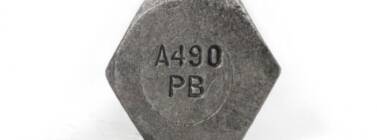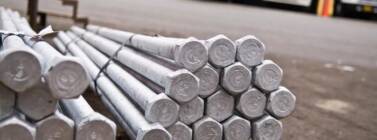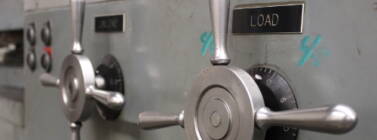What are Marine Fasteners?
The purpose of using a marine fastener versus other fasteners is to withstand corrosive saltwater and other harsh marine environments. Marine fasteners are commonly made from stainless steel or carbon steel which has a corrosion-resistant coating applied to it.
The reason that these materials would be preferred over other common fasteners is that they offer greater resistance to rust and corrosion.
When carbon steel fasteners are used in a marine environment, they will typically be hot-dip galvanized to further protect against corrosion. Whether stainless steel or hot-dip galvanized, these features allow the fasteners to be used in various applications where other fasteners would likely rust and corrode.
What types of projects are marine fasteners used for?
Some of the most common projects that you will see galvanized and stainless steel marine fasteners used for are docks and piers. They are used in the construction and repair of docks and piers due to frequent exposure to salt water and other corrosive elements.
Another place where you will see marine fasteners used is in the construction and maintenance of marinas. A marina is a dock or basin with moorings and supplies for yachts and small boats. Marinas are exposed to harsh corrosive elements making marine fasteners mandatory.
Seawalls are another place where marine fasteners are necessary. A seawall is constructed where the ocean impacts directly upon the landforms of the coast. The purpose of a seawall is to protect the land from incoming tides, waves, or tsunamis.
Docks, piers, marinas, and seawalls are common marine projects that require galvanized marine fasters, which provide corrosion resistance and durability.

What makes a marine fastener different from normal construction fasteners?
One main characteristic of marine fasteners versus a typical construction fastener is their ability to hold up against the harshness and corrosiveness of marine environments. The reason they hold up so well is that they are either stainless steel or hot-dip galvanized.
Hot-dip galvanizing provides corrosion resistance through a process in which zinc bonds to the surface of a fastener. The zinc coating acts as a barrier to prevent rust and corrosion.
The fact that the galvanized coating penetrates the surface of the steel makes the fastener more durable and able to withstand corrosion and maintain its strength and structural integrity over long lengths of time.
Although stainless steel fasteners are commonly used in marine projects, the cost of stainless steel is much higher making hot-dip galvanizing a more cost-effective option as well as being more readily available.
What is hot dip galvanizing?
Hot-dip galvanizing is the most commonly specified protective coating in the marine construction industry.
The ASTM specification F2329 covers the hot-dip galvanizing of bolts, screws, washers, nuts, and special threaded fasteners. Bolts are submerged in a tank of hot molten zinc which metallurgically bonds the zinc to the steel.
Hot-dip galvanizing offers an economical, long-term protective coating. This differs from another common coating known as zinc plating (or electroplating), which is a process where zinc is applied by using a current of electricity. This coating is much thinner than hot-dip galvanizing and in general is not specified in outdoor environments, especially marine environments.
Zinc plating is basically an aesthetic finish that could chip off and rust, but the hot-dip galvanized coating bonds and penetrates the surface of the steel and will not chip or flake off over time.
How long does galvanizing last before the fastener surface begins to corrode?
One common question is, “How much longer will hot-dip galvanizing last when compared to other corrosion-resistant coatings?”.
This is a valid question; however, it is unfortunately not easy to answer. There are many different variables to consider, given the countless applications that a galvanized bolt may be used for and the environmental conditions it may be exposed to.
There are many different elements that can make a difference in how long the galvanizing of a bolt will hold up, however, the bolt’s environment is the main factor.
Depending on the climate, the hot-dip galvanized coating will react differently. Common climates requiring a galvanized coating include rain, snow, a marine environment, or even high heat, which results in prolonged sun exposure.
The application of the bolt is also a major factor. For example, a bolt may be used to hold wooden members together above a body of water, however, the same structure may have bolts, which are completely submerged in water.
Since one environment is never equal to another, there isn’t any real way to determine how long the galvanizing will last. What we do know is that a galvanized fastener will withstand corrosion much longer than a bolt without any coating.
According to the American Galvanizers Association, galvanized steel “corrodes at a rate of 1/30 of bare steel in the same environment.” The American Galvanizers Association has a Zinc Coating Life Predictor on their website that you may find useful.

Does Portland Bolt manufacture Marine Fasteners?
Portland Bolt manufactures a wide variety of marine fasteners. Common fasteners used on marine projects include hex bolts, carriage bolts, timber bolts, anchor bolts, and float rods with threads on each end.
Timber bolts are used due to their large round head, which has a low profile so they will not stick up posing a potential hazard. This comes into play when used on docks where people walk. The large, round head also eliminates the need for a malleable iron washer.
Another common marine fastener that Portland Bolt manufacture is what is commonly referred to as float rods. Float rods are long rods with threads on each end. Float rods are used to connect sections of a dock, also known as a floating dock.
Anchor bolts are used for bollards and marine fender systems. All of the marine fasteners that Portland Bolt manufactures are stainless steel or hot-dip galvanized, which is performed in-house.
Galvanizing threaded fasteners requires a specially designed galvanizing line. General-purpose galvanizers may not have centrifuge systems necessary to remove excess zinc from the threads potentially preventing a nut from threading onto the fastener.
Portland Bolt’s unique system developed specifically for threaded fasteners ensures quality threads and a trouble-free nut fit.



